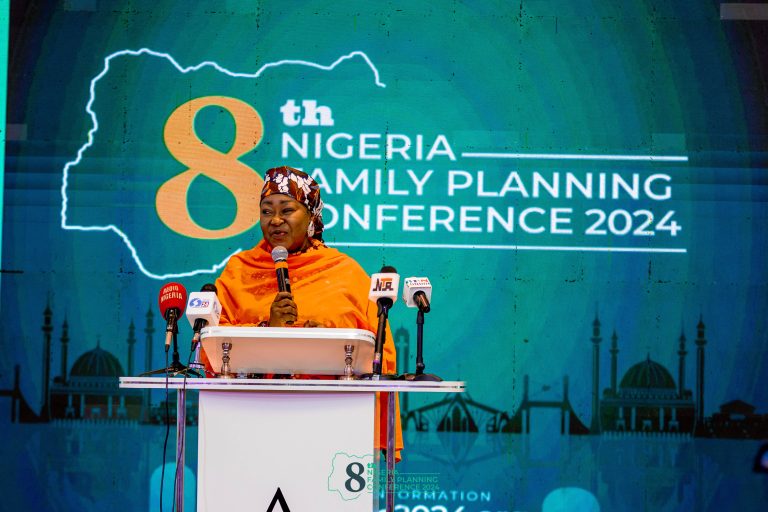Nigeria’s budget has been heavily skewed toward recurrent expenditures in recent years, leaving critical sectors like health underfunded. For instance, the 2023 health budget was ₦1.17 trillion which is about 5.75 per cent of the total budget. The 2023 health budget included N1.07 trillion for the Federal Ministry of Health and its agencies, N137.21 billion for GAVI/Immunization funds and N125.74 billion for the Basic Healthcare Provision Fund.
By Justina Asishana
For 2024, the health budget is N1.23 trillion, which is less than 5 per cent of the proposed N27.5 trillion total government expenditure. The budget includes N125.7 billion for the Healthcare Provision Fund and also funds for the National Health Insurance Scheme (NHIS) for military retirees and corps members.
At the 8th Nigeria Family Planning Conference held in Abuja from 4-6 December 2024, the Federal Government disclosed that it has dedicated 1 per cent of the health budget to family planning. This move was applauded by all stakeholders and participants who attended the conference.
Read Also: Microsoft’s copilot AI enhances journalist productivity in Nigeria
Dedicating 1% of Nigeria’s total health budget to family planning would have a significant impact on the lives of women and girls, particularly in rural areas. This investment would translate to increased access to contraceptives, improved maternal and child health, and empowered women with greater control over their reproductive health.
Here’s a breakdown of the potential benefits:
- Improved Access to Contraceptives: Only 17 per cent of married women in Nigeria use modern contraceptives (NDHS 2018). This is lower in rural areas where access to health services is constrained by poor infrastructure and cultural norms. Increased funding could lead to better availability of affordable contraceptives in primary health centres, helping women plan their pregnancies and avoid unintended ones. For example, a woman in a hard-to-reach community in Kebbi State could access free or subsidized contraceptives without travelling long distances, reducing her financial burden.
- Reduced Maternal Mortality: Unintended pregnancies and closely spaced births are major risk factors for maternal mortality. Many of these deaths are due to complications from unintended pregnancies and unsafe abortions. Increased access to contraceptives would allow women to plan their pregnancies, leading to healthier outcomes for both mothers and babies.
- Improved Child Health: Family planning enables women to space their pregnancies, allowing them to provide better care and nutrition to each child. This leads to improved child health outcomes, including reduced infant and child mortality rates.
- Empowered Women: Early and unintended pregnancies often disrupt education for girls, especially in rural areas where opportunities are already limited. Access to family planning gives women control over their reproductive health, allowing them to make informed choices about their bodies and futures. This empowerment can lead to increased educational attainment, economic participation, and overall well-being for women and girls. For example, a teenage girl who receives access to reproductive health education and services could avoid early pregnancy, graduate from school, and gain employment.
- Reduced Poverty: Large family sizes strain household resources, keeping many impoverished families. Empowering families to space or limit births can improve household economic stability and reduce poverty, especially in rural communities dependent on subsistence farming.
Challenges to address
- Cultural and Religious Barriers: Resistance to family planning is prevalent in rural areas. Advocacy and community engagement are necessary to change perceptions.
- Health Infrastructure: Additional funding must also address gaps in healthcare delivery to ensure services reach the underserved.
Specifically in rural areas, where access to healthcare services is often limited, this investment would have a particularly significant impact. Mobile health clinics and community-based programs could be established to provide family planning services and education to women in remote areas. This would ensure that women in all parts of Nigeria have access to the information and resources they need to make informed choices about their reproductive health.
Dedicating 1% of Nigeria’s health budget to family planning would be a wise investment with far-reaching benefits for women, girls, and the nation. It would transform the lives of millions of women and girls by reducing maternal deaths, increasing educational attainment, and improving economic outcomes. For rural areas, it represents a critical investment in breaking cycles of poverty and fostering gender equity. With strategic implementation, the impact would ripple across families, communities, and the entire nation.


